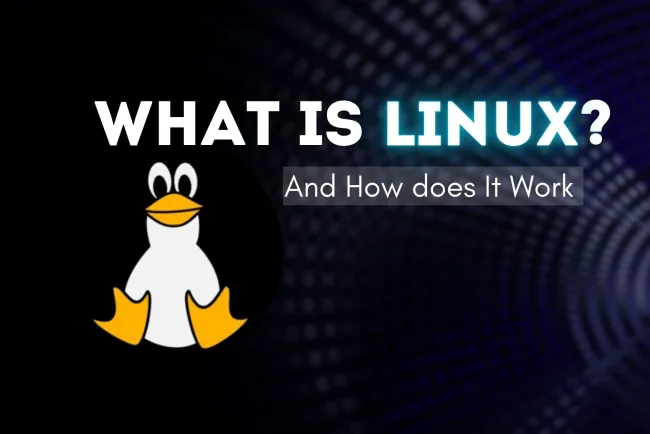How to Transition from a Non-IT Career to IT Without Coding | Explore High-Paying Roles in IT Infrastructure, Cybersecurity, Data Science, and More
Transitioning to an IT career from a non-IT background is possible and lucrative, even without the need for coding skills. With the rise of high-demand fields like IT infrastructure, cybersecurity, ethical hacking, and data science, numerous opportunities are available for individuals looking to enter the tech industry without needing extensive programming expertise. In this blog, we’ll guide you through the best non-coding IT roles, the skills and certifications required, and how to make the shift into these high-paying careers. Whether you’re looking to start fresh or switch your career path, the IT sector offers excellent prospects with no coding required.

Introduction
In the ever-evolving world of technology, Information Technology (IT) offers a wide variety of career paths, not all of which require you to be proficient in coding. Many professionals today are opting for non-coding roles within IT that still offer high salaries, career growth, and job satisfaction. Whether you’re interested in IT infrastructure, cybersecurity, ethical hacking, or data science, there are numerous roles available where coding is not the primary skill.
This blog will explore high-paying IT roles that do not require programming expertise, outline the skills you need, and provide a roadmap for transitioning into these fields.
High-Paying IT Roles That Don't Require Coding
| Role | Key Responsibilities | Skills Required | Certifications | Salary Potential |
|---|---|---|---|---|
| IT Infrastructure Specialist | Manage hardware, network devices, cloud infrastructure, and troubleshoot systems. | Network protocols, routers, switches, cloud services. | CompTIA A+, CompTIA Network+, Cisco CCNA | ₹5 LPA to ₹12 LPA |
| Cybersecurity Analyst | Monitor security systems, conduct vulnerability assessments, and mitigate risks. | Network security, firewalls, encryption tools. | CompTIA Security+, CISSP, CEH | ₹6 LPA to ₹15 LPA |
| Ethical Hacker | Conduct penetration tests, assess security vulnerabilities, and document findings. | Network protocols, security tools like Kali Linux. | CEH, OSCP | ₹7 LPA to ₹18 LPA |
| Data Scientist (Non-Coding) | Data collection, analysis, visualization, and reporting. | Data analysis, statistical methods, visualization tools. | Google Data Analytics, Microsoft Power BI | ₹5 LPA to ₹12 LPA |
| Cloud Administrator | Configure and manage cloud resources and ensure cloud system uptime. | AWS, Azure, cloud storage, cloud networking. | AWS Certified Solutions Architect, Microsoft Certified | ₹6 LPA to ₹15 LPA |
| IT Support Specialist | Troubleshoot and resolve hardware/software issues, provide user support. | Hardware knowledge, operating systems, troubleshooting. | CompTIA A+, Microsoft Certified: Windows Server | ₹4 LPA to ₹8 LPA |
Steps to Transition from Non-IT to IT
Step 1: Identify Your Area of Interest
The first step is to identify which non-coding IT domain aligns with your skills and interests. Whether it’s cloud administration, cybersecurity, or IT support, choose an area that excites you and fits your career goals.
Step 2: Get Certified
Earning certifications is essential to validating your knowledge and skills. There are various beginner-friendly certifications available for non-coders in each field:
-
For cybersecurity, CompTIA Security+ or Certified Ethical Hacker (CEH) are great starting points.
-
For data science and business intelligence, certifications like Google Data Analytics or Microsoft Power BI can help.
-
For IT infrastructure, certifications like CompTIA Network+ or Cisco CCNA are ideal.
Step 3: Gain Practical Experience
Although coding is not required, hands-on experience in the field is crucial. Seek internships, part-time roles, or freelance projects to apply what you’ve learned and gain real-world experience.
Step 4: Update Your Resume and LinkedIn Profile
Once certified and with some experience, update your resume and LinkedIn profile to reflect your skills, certifications, and any projects you’ve completed. Make sure to highlight your non-coding IT skills.
Step 5: Apply for Entry-Level IT Roles
Start applying for entry-level roles in the IT domain you've chosen. Focus on roles that align with your expertise, and be open to internships or contract positions as they provide valuable experience.
Conclusion
Making the switch from a non-IT background to an IT career is entirely possible, even without coding. By focusing on areas like IT infrastructure, cybersecurity, ethical hacking, data science, and cloud administration, you can build a fulfilling and high-paying career in the tech industry. With the right certifications, hands-on experience, and determination, the transition to IT roles that don’t require coding can be a rewarding path to professional growth.
Start your journey by investing in training and certifications, gaining practical experience, and applying for roles that suit your interests. In no time, you’ll be positioned for success in the growing world of IT.
For professional training in Cybersecurity, Data Science, Cloud Administration, and more, explore the comprehensive certification programs at Webasha Technologies. These programs are designed to equip you with the skills and knowledge to succeed in high-paying IT roles that don't require coding expertise.
FAQs:
What are some high-paying IT roles that don’t require coding?
There are several high-paying roles in IT that do not require coding, including positions in IT infrastructure, cybersecurity, ethical hacking, and data science.
Is it possible to get into IT without coding skills?
Yes, many IT jobs focus on areas like system administration, network security, and cloud computing, where coding isn’t necessary.
What skills are needed for non-coding IT roles?
Key skills include knowledge of network systems, security protocols, data analysis, and cloud management, among others, depending on the role.
Which certifications help with non-coding IT roles?
Certifications like CompTIA A+, CompTIA Security+, CEH (Certified Ethical Hacker), and Microsoft Certified: Azure Fundamentals are ideal for non-coding IT roles.
Can I enter cybersecurity without coding knowledge?
Yes, cybersecurity roles like security analyst or security consultant can be pursued without deep coding knowledge, focusing more on protocols, systems, and security tools.
What is the role of an IT infrastructure specialist?
An IT infrastructure specialist manages an organization’s physical and virtual systems, including networks, servers, and cloud services, without needing to code.
How can I get into ethical hacking without programming?
Ethical hacking involves identifying vulnerabilities in systems through penetration testing and security assessments, and some of these tasks can be performed using tools without coding.
What are the key responsibilities of a data scientist in non-coding roles?
Data scientists in non-coding roles focus on analyzing, cleaning, and visualizing data using tools like Excel, Power BI, or Tableau, without having to write complex code.
What certifications can boost my career in data science without coding?
Certifications such as Google Data Analytics or Microsoft Power BI are great for non-coding roles in data science, focusing on analytics and reporting.
Is cloud administration a non-coding role?
Yes, cloud administration involves managing cloud infrastructure, services, and resources like AWS and Azure, and it generally doesn't require extensive coding.
What is the salary potential in non-coding IT jobs?
Non-coding IT jobs can offer salaries ranging from ₹4 LPA to ₹18 LPA depending on the role and experience.
Do I need a degree to get into IT without coding?
While a degree can be helpful, it’s not always required. Certifications, skills, and hands-on experience can be just as valuable.
How can I prepare for a career in IT support?
To prepare for IT support, consider certifications like CompTIA A+ and gain experience troubleshooting hardware and software issues.
How can I get started in IT infrastructure?
Starting in IT infrastructure requires knowledge of networking, system administration, and cloud services. Certifications like CompTIA Network+ can help you enter the field.
What is the role of a cybersecurity analyst?
A cybersecurity analyst monitors an organization's systems for vulnerabilities, responds to incidents, and ensures the overall security of networks and data.
What tools are used in non-coding cybersecurity roles?
Tools like Wireshark, Splunk, Nessus, and Metasploit are widely used for network monitoring and vulnerability assessments without requiring coding.
What does an ethical hacker do?
An ethical hacker tests systems and networks for vulnerabilities by attempting to exploit them, to help organizations strengthen their security defenses.
Are there entry-level roles in ethical hacking that don’t require coding?
Yes, there are entry-level ethical hacking roles that focus more on vulnerability scanning, network analysis, and security assessments without requiring heavy coding.
What is cloud computing, and how can I get into it without coding?
Cloud computing involves managing and deploying resources via cloud platforms like AWS and Microsoft Azure. You can get into it by understanding cloud architecture and tools.
How can I transition to IT from a non-IT background?
Start by identifying which non-coding IT role interests you, then acquire relevant certifications and experience to build your credibility in the field.
What role does data visualization play in data science?
Data visualization is key in data science to interpret and present findings. Tools like Tableau or Power BI allow data scientists to present insights without programming.
Is it necessary to have programming knowledge for network administration?
No, network administration typically involves managing networks, setting up devices, and ensuring systems function smoothly, which does not require coding.
How do I choose the best IT certifications for a non-coder?
Focus on certifications that align with your chosen role, such as CompTIA A+, Cisco CCNA, or Certified Ethical Hacker (CEH), depending on your interest in IT infrastructure, security, or cloud services.
How long does it take to get certified in IT roles without coding?
Certification programs typically take anywhere from a few weeks to a few months, depending on the complexity of the certification and your study time.
Can I freelance in IT roles without coding?
Yes, many IT roles, such as IT support, cybersecurity analyst, and data analyst, offer freelance opportunities. Having the right certifications and portfolio is key.
How can I gain hands-on experience in IT without coding?
Look for internships, online labs, or personal projects where you can apply the concepts you’ve learned in your certification courses.
What is the difference between a network administrator and a system administrator?
A network administrator focuses on network infrastructure, while a system administrator manages servers, operating systems, and databases.
Is cloud security a good non-coding career?
Yes, cloud security is a growing field that focuses on securing cloud-based environments without requiring coding skills.
What are the best resources for learning non-coding IT skills?
Some great resources for learning include platforms like Coursera, Udemy, and LinkedIn Learning, as well as certification-focused providers like CompTIA and Cisco.
Can I switch careers into IT even if I’m not technically savvy?
Yes, with the right mindset, dedication, and by starting with foundational certifications, anyone can transition into IT, even without prior technical experience.
What roles are available in data science without coding?
Roles in data science without coding include data analyst, business intelligence analyst, and data visualization specialist.
Can I manage IT projects without coding knowledge?
Yes, project management in IT involves overseeing projects, managing teams, and ensuring successful execution, which typically doesn’t require coding.
What certifications help with IT support roles?
Certifications like CompTIA A+, CompTIA IT Fundamentals, and Microsoft Certified IT Specialist are highly beneficial for IT support roles.














![Top 10 Ethical Hackers in the World [2025]](https://www.webasha.com/blog/uploads/images/202408/image_100x75_66c2f983c207b.webp)








